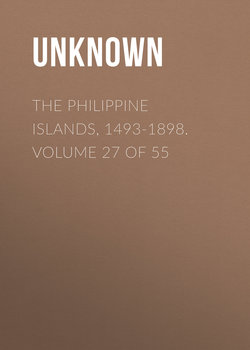Читать книгу The Philippine Islands, 1493-1898. Volume 27 of 55 - Unknown - Страница 33
На сайте Литреса книга снята с продажи.
Grau y Monfalcon’s Informatory Memorial of 1637
Number 26. Entrance of the Dutch into India, and their commerce
ОглавлениеThe commerce of the Orient lasted in Lisboa, without any other nation but the Portuguese sharing it, for almost one hundred years, which appears to have been the fatal century of their career. But as always they set upon that trade the value which has been made known in the wars of Flandes and the prohibition of trading with Olanda, their rebels determined to try to secure it; and in the year 1595 their first armed fleet entered India, to carry a portion of the spice to their islands, imparting it through them to all the northern nations, and even to those of the Levant by way of the strait of Gibraltar. Returning merchandise of great richness, they introduced a new trade, so remunerative as may be understood from the peril that they undergo, and from the expenses that they incur, in order to maintain it. Whatever they have acquired by that voyage (and it is not little) they have pillaged from this crown. The Dutch spreading through the Orient, recognizing the wealth of those regions, established their business, took part in barter there, erected factories, built presidios, fortified ports, and (what can well cause more anxiety) collected sea forces, by which they have succeeded even in driving out the Spaniards from their houses, in disquieting them, and, at times, in blockading them. They began to go out to the ocean with this trade, becoming the general pirates of the two Indias—where there are those who affirm that they have pillaged more than one hundred and thirty millions in less than forty years. They established the chief seat of this commerce in Bantan,27 the principal port of Java Major, whither people go from all the islands—Banda, Maluco, Gilolo, Sumatra, Amboino—and from the mainland of Coroman [Goroman—MS.], Siam, Pegu, Canboxa [Ganboxa—MS.], Patan, Champa, and China. Turks, Arabs, Persians, Gusarates, Malays, Jaos, Egyptians, and Japanese go there. Consequently, with the presence of so many nations and so various sects (all of which are evil) Bantan may better be called “the Oriental Ginebra [i.e., Geneva].” There are two markets or fairs held there daily, at which more than thirty thousand persons come together to buy and sell.
27
See Sir Henry Middleton’s Voyage to Bantam (Hakluyt Society’s publications, London, 1855); that voyage took place in 1604–06.
